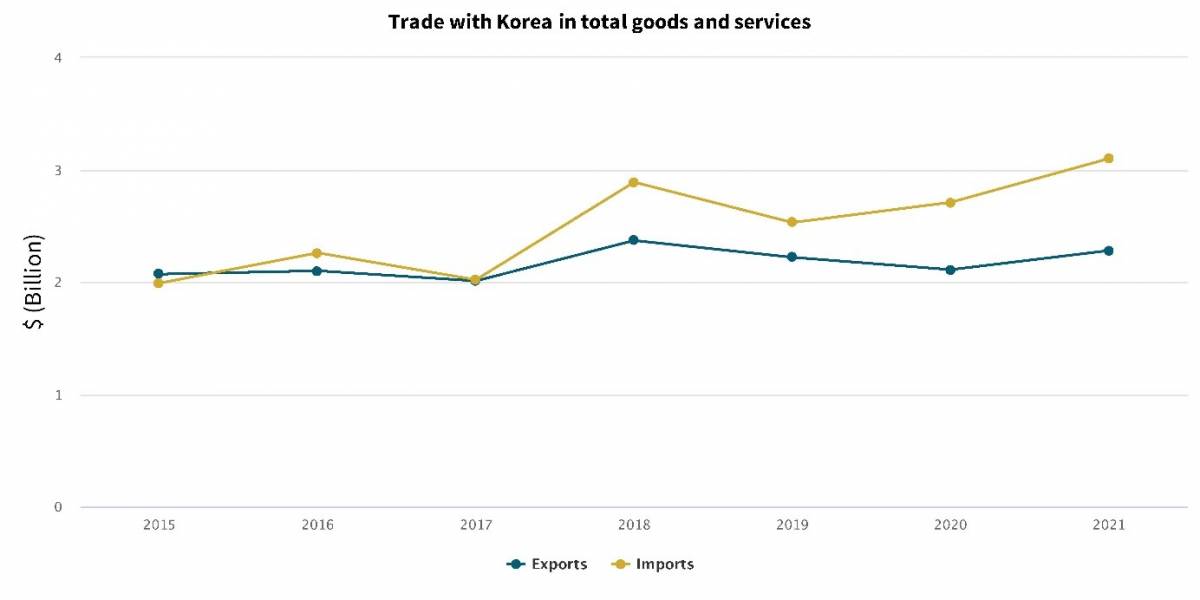Overview
New Zealand and the Republic of Korea (Korea) have a long history of working together dating back to New Zealand’s involvement in the Korean War. Korea is one of the countries in Asia that shares our values: a strong democracy, an open market economy and respect for the rule of law. Our like-mindedness, along with political, economic, and vibrant people-to-people links, are points of familiarity which enable the free exchange of views and provide a platform for us to cooperate.
The Korea-New Zealand Free Trade Agreement (KNZFTA) is a high quality, comprehensive agreement which delivers significant commercial benefits to New Zealand exporters. Signed on 23 March 2015, and in force since 20 December 2015, the KNZFTA marked a significant milestone in our bilateral relationship. It also established the foundation for an even closer relationship between New Zealand and Korea. This included a sizeable growth in two-way trade.
Korea is a key trading partner for New Zealand, with two-way trade worth $8.8 billion in the year ending December 2023 (an increase of 117 percent from the year ending December 2015). Currently, Korea is New Zealand’s sixth largest trading partner.
In 2023, New Zealand exported $2.8 billion of total goods and services to Korea and imported $5.96 billion. Korea is New Zealand’s sixth largest export destination for goods and services and fifth largest import source of goods and services.

KNZFTA facilitates the movement of goods and services, removes various trade barriers, provides greater certainty to investments, and establishes a framework for resolving trade-related issues. It also allows for more cooperation in such areas as agriculture, education, trade facilitation, science and technology, and film and television.
Some of New Zealand’s key competitors enjoyed preferential access into the Korean market prior to KNZFTA. KNZFTA helps rectify this imbalance, allowing New Zealand exporters to compete on a more level playing field.
Tourism and education services, which had fallen precipitately due to COVID-19 restrictions are recovering. The New Zealand brand continues to resonate well in Korea with consumers, but also education and tourism stakeholders.

